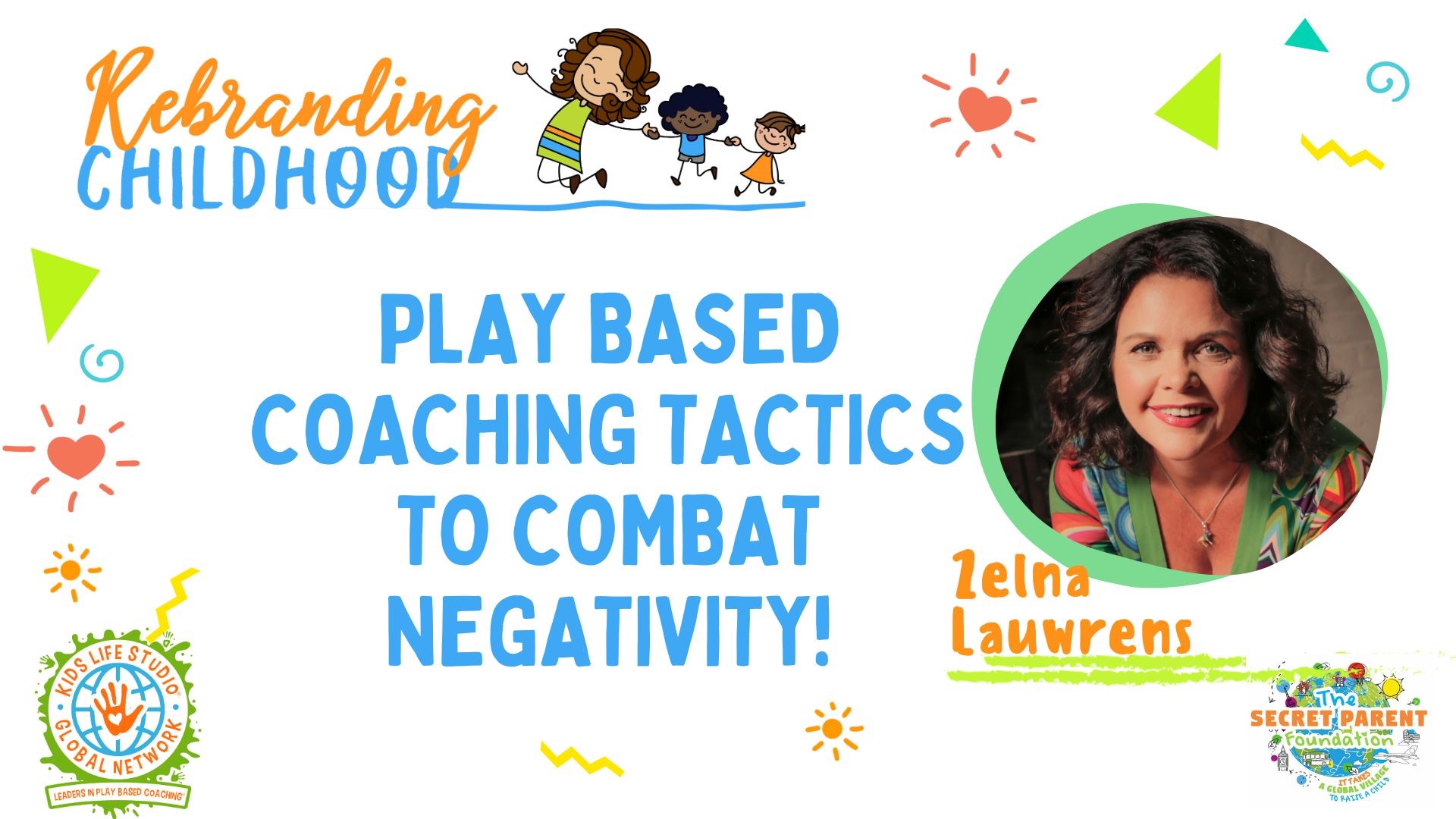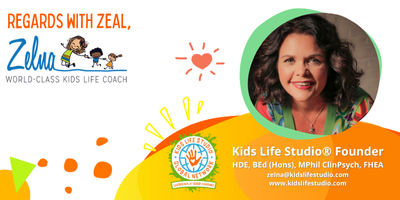Play Based Coaching Tactics: Fun and Effective Ways to Coach Children Through Negativity

As life coaches, we know that working with children often requires a unique, engaging approach. Children, especially those who tend to be excessively negative, benefit greatly from learning through play. Play is an incredibly powerful tool that can help children shift their mindset, regulate their emotions, and reframe negative thinking in a fun and natural way. Here are some top tips for coaching children to overcome excessive negativity, using some fun Play Based Coaching® tactics that promote positivity and resilience.
1. Create a Safe Play Space for Emotions
Before diving into the techniques, it’s important to establish a space where children can feel free to express themselves. Through play, children often feel more comfortable opening up about their emotions. You can use role-playing games to act out different scenarios where children express frustration or sadness. This not only allows children to process their emotions but also provides a healthy outlet for them to release negativity in a controlled environment. For instance, a “feelings puppet” can help kids put a voice to their emotions, making it easier for them to discuss what’s bothering them in a playful and non-threatening way.
2. Reframe Negative Thoughts Through Storytelling
Storytelling is a fantastic Play Based Coaching® tactic for shifting negative thought patterns. Turn complaints into creative adventures by turning the child’s “problem” into a story. For example, if a child is complaining about doing schoolwork, create a story about a superhero who faces a big challenge but uses their brainpower to overcome it. By allowing children to narrate the story, you help them see their challenges as opportunities for growth and creativity. Through this imaginative play, children learn to reframe negativity by seeing problems as part of a larger, exciting adventure.
3. Celebrate Wins With Games
Children are more likely to focus on the positive when they have fun, so use games to celebrate small wins. Incorporating reward systems or gamified tasks into your coaching, can encourage children to focus on progress rather than setbacks. For example, play a “success bingo” game where each completed task or small win marks a spot on their bingo card. Once they achieve a row or fill the card, they get a small reward or engage in a fun activity of their choice. This play-based approach not only reinforces positive behavior but also helps children associate achievement with enjoyment.
4. Positive Self-Talk Through “Power Poses” and Movement
Movement and body language can have a huge impact on mindset. Use Play Based Coaching® tactics like "power poses" to teach children how to engage in positive self-talk - what we like to call Zeal Talk® at Kids Life Studio®. You can play a game where children take on superhero poses or animal stances — like standing tall with hands on hips, or mimicking the strong posture of a lion. These poses are a fun, physical way to encourage self confidence and positivity. As children hold these poses, you can guide them to repeat positive affirmations like “I can do this!” or “I’m strong and capable!” The combination of physical movement and positive reinforcement helps to shift the focus from negativity to empowerment.
5. Mindful Play and Gratitude Games
Incorporating mindfulness and gratitude into play can help children develop a more positive outlook. A simple and fun activity that I love, is the “Gratitude Scavenger Hunt.” Give children a list of things they can be thankful for, like a “soft pillow,” “a friend,” or “something that makes them laugh.” While playing, they’ll search for these things around the room or outdoors and this will lead to shifting them into a positive, gratitude based mindset. Alternatively, a “gratitude jar” game can be sent home that involves children writing or drawing one thing they are thankful for on a slip of paper everyday and placing it in the jar. This playful approach helps children develop the habit of focusing on the positive, reducing negativity over time.
6. Use Visuals and Art for Reframing
Art is another fantastic Play Based Coaching® tool for coaching children to overcome negativity. Help children visualise their thoughts by drawing out their worries or challenges on paper or a big canvas. You can encourage them to create a “complaint monster,” where every complaint is drawn and turned into a fun, silly character. Then, work together to transform this “monster” into something positive — like a superhero that learns from mistakes. This playful visualisation allows children to externalize their negativity in a non-threatening way, making it easier to challenge and reframe those thoughts.
7. Turn Challenges Into Playful Competitions
Kids love a bit of friendly competition, so why not turn their challenges into a game? When a child faces something they feel negative about, like completing homework or a tricky task, transform it into a race or challenge. You can use a timer and say, “Let’s see if we can finish this task before the timer goes off!” Or you can create a “task treasure hunt” where each completed task leads to a new clue or small prize. This playful approach makes tasks feel less intimidating and encourages kids to approach them with a positive attitude, seeing them as fun challenges rather than burdens.
8. Incorporate Mindful Breathing with Playful Animals
Mindfulness techniques don’t have to be boring. Use animals and playful imagery to make mindful breathing exercises fun. As the author of Zeal the Zebra shows his true colours, I love to play a game called “The Breathing Lion,” where the child pretends to be a lion — breathing in deeply through the nose to roar out loud, followed by calm, slow exhalation to mimic a lion’s majestic posture. I also play the “Snake Breath” game where children pretend to be snakes, inhaling deeply and exhaling slowly with a long hissing sound. These fun, imaginative activities help children regulate their emotions and calm their minds, reducing the impact of negativity in a playful way.
By incorporating fun Play Based Coaching® tactics into your sessions, you can guide children toward overcoming negativity while keeping them engaged, empowered, and excited about the process. Play gives children the space to explore their emotions, build resilience, and reframe their thinking in a way that feels natural and enjoyable. Through storytelling, games, creative art, and mindful movement, it becomes easy for you to create a foundation for emotional growth that is both effective and fun!
As coaches, it’s our job to transform challenges into opportunities for fun and learning. So, let’s keep playing, keep guiding, and watch as children develop the emotional skills to thrive and succeed with a positive mindset!


